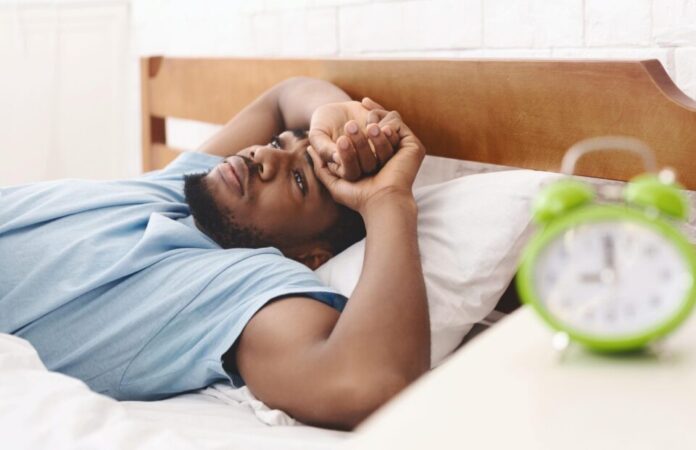Memorial Day weekend blew the lid off racial inequality in this country faster than any other time period in history. George Floyd’s murder forced large swaths of the this country to face the dramatic differences between the lived experiences of white people and people of color.
The heightened awareness of police brutality, coupled with the stark realities of the coronavirus pandemic, which has affected us disproportionately, was a sobering reminder that the tendency to focus on public health data in the aggregate can obscure how the burdens of health problems are not equally distributed across society.
People in disadvantaged groups of a certain race, ethnicity, gender, sexual orientation and socioeconomic status frequently suffer from a greater share of health issues.
And a growing body of evidence suggests sleeping problems are also an area of significant health disparities between racial and ethnic groups. Sleep plays a critical role in overall wellness, so it stands to reason that sleep insufficiency can also help explain other health disparities, such as the higher rates of heart disease and diabetes, among Black folks.
The root causes of racial disparities are still being studied. Experts admit defining the concepts of race and ethnicity is complicated. Current theories hold that race and ethnicity are social constructs, not biological, and as such must be understood within a broader cultural context.
But “the effects of these social constructs are real,” according to Eliseo J. Pérez-Stable, director of the National Institute on Minority Health and Health Disparities. And these effects can be identified in a range of health outcomes.
So as imperfect as the concepts of race and ethnicity are, they are a starting point for examining the differences in sleep and health problems.
Across races, ethnicities and genders, sleeping difficulties are a major issue in the United States. An estimated 30 percent of adults suffer from insomnia, with an even higher percentage reporting they get less than seven hours per night.
Researchers who have started to dig deeper into the data, however, have found that, although sleeping problems can affect people of all races, there are strong indications they have a disproportionate impact on racial and ethnic minorities.
One recent study found that Black respondents reported the least amount of sleep on weekdays. A number of other health studies have found similar results with higher rates of short sleep among Black people than other groups. Sleep apnea, a breathing disorder with potentially serious health consequences, was more common and more severe in Black people, especially among Black young adults. Studies have also found higher rates of long sleep—more than nine hours per night—among Black folks. Like less than seven hours, more than nine hours can also cause health issues and has been associated with higher mortality rates.
Researchers suggest a number of potential causes of the higher rates of sleeping difficulties for people of color. A common theme: higher levels of physical and emotional stress.
Stress can induce an “on alert” state, known as hyperarousal, that has been found to be a key component of insomnia.
Other contributors to sleep-related health disparities include:
- Shift Work: People of color are more likely to work night shifts or irregular or extra hours that can throw off their sleep schedule and their ability to sync their circadian rhythm with the local day-night cycle.
- Occupational Hazards: Many people of color report job stress from discrimination in the workplace. In addition, it’s more common for people of color to work in jobs with greater safety risks that can create stress or occupational exposures to allergens or irritants that may increase their susceptibility to sleep apnea.
- Racial Discrimination: The issue of police brutality is only one aspect of racial discrimination that can have far-reaching effects on a person’s health. Fear, anger and sadness related to racial discrimination are major stressors for many people of color, and studies have found an association between perceived discrimination and lack of sleep.
- Financial Stress: A higher percentage of racial and ethnic minorities face unemployment and poverty, both of which can create financial pressure and significant daily stress.
- Environment: Neighborhoods with a higher percentage of racial and ethnic minorities often confront higher levels of pollution, noise, allergens and other potential stressors and contributors to poor sleep and sleep apnea.
- Acculturation: For minority groups, especially those made up of significant immigrant communities, the process of interacting with dominant culture in America can be a source of tremendous stress and anxiety that may influence sleep quality.
- Unequal Access to Quality Medical Care: Disparities in access to care have a broad effect on health outcomes for minority groups. Conditions like sleep apnea may be less likely to be diagnosed or treated, or people may be less likely to discuss sleeping problems with their physician.
Many of these factors contribute to other chronic health conditions that occur with greater frequency in racial and ethnic minorities, such as a greater risk of obesity and diabetes.
Sleep is critical to every aspect of wellness. It promotes physical health and recovery with direct effects on almost all systems of the body. Sleep is vital for cognitive function, attention, memory and emotional health.
Understanding how sleeping problems affect racial and ethnic minorities can help public health officials design better programs to address sleep and other related health disparities. That’s why effective strategies to improve sleep are necessary to reduce inequalities in the health system.
Better data about the extent of the problem is necessary but that doesn’t go far enough. Most accepted insomnia treatments—cognitive behavioral therapy for insomnia or education about sleep hygiene—are based on research that didn’t include people of color. Studies need to have more diverse representation.
Stronger efforts to look at solutions to broader issues like access to health care, racial discrimination, police brutality, environmental justice, and employment and economic opportunity are also key, as they play a central part in addressing the underlying factors that drive differences in sleep patters of racial and ethnic populations.





